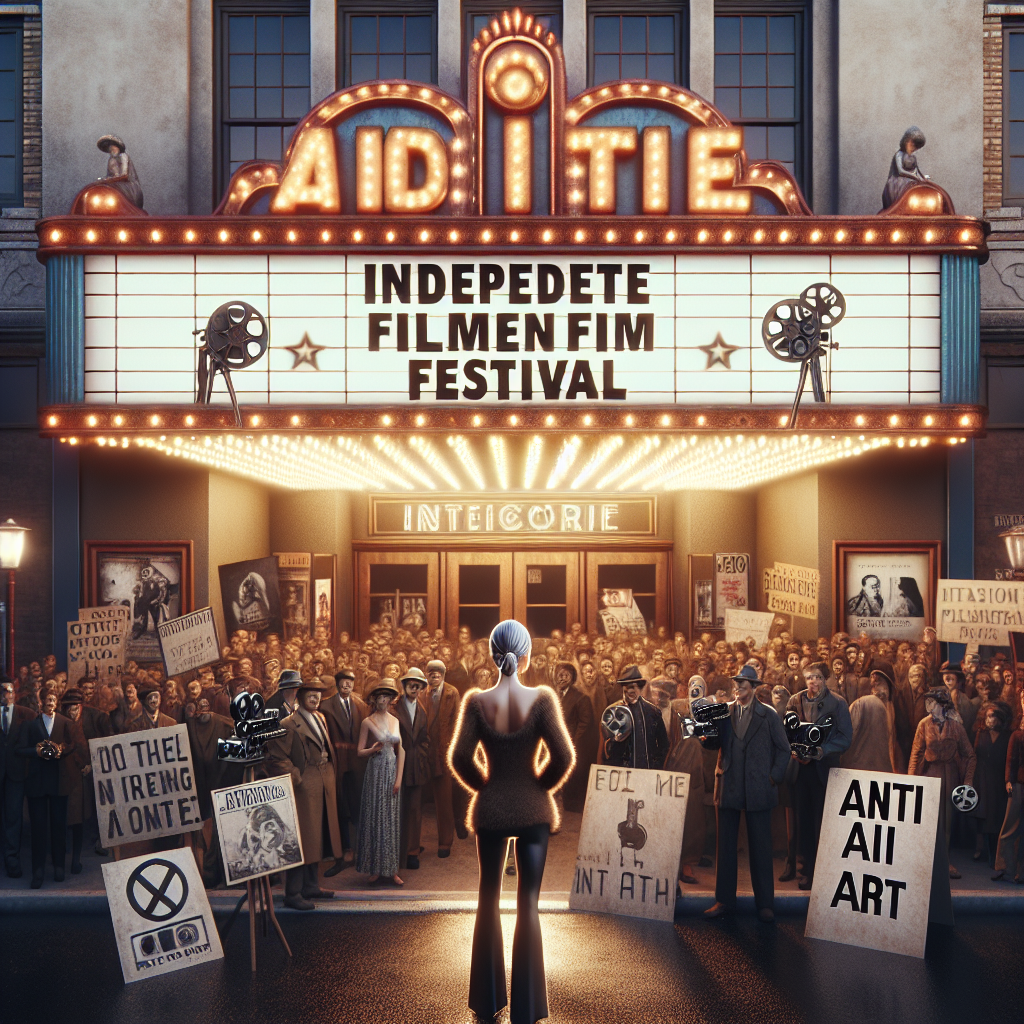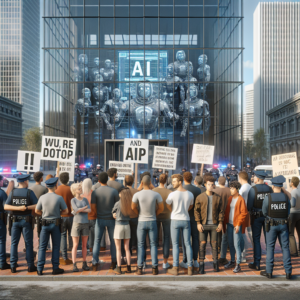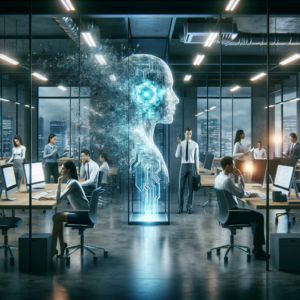Justine Bateman, Decrying OpenAI, Has Launched a No-AI Film Festival
In an era where artificial intelligence (AI) is increasingly permeating the arts, actress and filmmaker Justine Bateman has taken a bold stance against the influence of AI in the filmmaking industry. Following her concerns regarding the potential implications of AI-generated content, Bateman has launched a unique initiative: a film festival dedicated to works created without the assistance of artificial intelligence. This decision is a powerful statement about the value of human creativity in a world that seems to be leaning towards automation.
The Rise of AI in Filmmaking
The advent of AI technology has introduced a new toolset for filmmakers, offering capabilities such as scriptwriting, editing, and even CGI effects. While many in the industry have embraced these innovations, Bateman stands firm in her belief that certain aspects of storytelling and artistry cannot—and should not—be replaced by machines. Here are several points to consider regarding the rise of AI in filmmaking:
- Efficiency vs. Authenticity: AI can drastically reduce production time and streamline processes, but at what cost? The essence of storytelling may be diluted when human emotion and experience are bypassed.
- Human Touch: Films created without human input may miss out on the nuances of human experience, cultural references, and emotional resonance that only a human creator can provide.
- Job Security: The rise of AI in creative fields raises questions about job security for writers, directors, and artists who might find themselves outpaced by technology.
Bateman’s Vision for the No-AI Film Festival
Justine Bateman’s No-AI Film Festival aims to celebrate the artistry that comes from human effort, creativity, and ingenuity. By explicitly excluding AI-generated films, the festival seeks to create a space where filmmakers can showcase their work without the influence of technology. Bateman hopes to highlight the following aspects through the festival:
1. Celebrating Originality
At its core, the festival emphasizes the importance of originality in storytelling. Bateman believes that human narratives, informed by lived experiences, have unique qualities that cannot be replicated by algorithms. The festival will spotlight films that convey authentic human emotions, experiences, and connections.
2. Fostering Community
The No-AI Film Festival will serve as a gathering point for filmmakers, actors, and audiences who share a commitment to preserving the art of cinema without technological interference. It aims to foster a sense of community among creators who prioritize collaboration, creativity, and a shared vision.
3. Encouraging Dialogue
By launching this festival, Bateman hopes to spark conversations about the role of technology in the arts. These discussions will address the potential risks and benefits of AI in creative fields, helping both artists and audiences navigate the evolving landscape of filmmaking.
Challenges Ahead
While Bateman’s initiative is commendable, it is not without its challenges. The film industry is rapidly adapting to technological advancements, and many creators are integrating AI into their workflows. Here are some potential hurdles the festival may face:
- Industry Resistance: Some industry professionals may view the festival as exclusionary or outdated, arguing that AI can enhance rather than detract from creativity.
- Funding and Resources: Securing funding and resources for a festival that limits participation to non-AI films may prove difficult in a market increasingly driven by technological solutions.
- Audience Reception: Audiences may have varying opinions on the necessity of a No-AI film festival, leading to mixed reception and attendance.
The Importance of Human-Driven Art
Bateman’s endeavor is a reminder of the importance of human-driven art in an age of rapid technological advancement. While AI can assist in many ways, it cannot replace the human spirit inherent in storytelling. Here are several reasons why preserving human creativity is crucial:
1. Emotional Depth
Human experiences provide emotional depth that resonates with viewers. A story created without human input may lack the emotional nuances that make films relatable and impactful.
2. Cultural Representation
Cultural narratives and histories are best captured by those who have lived them. Human storytellers have the ability to represent their communities authentically, ensuring that diverse voices are heard.
3. Artistic Expression
Art is an expression of individuality and creativity. By relying on AI, we risk losing the unique perspectives that come from different artists and their personal experiences.
Conclusion: A Stand for Creativity
Justine Bateman’s launch of the No-AI Film Festival is not just a reaction to the technological advancements in filmmaking; it is a stand for the values that underpin the art of cinema. As the film industry navigates the complex relationship between creativity and technology, Bateman’s initiative serves as a reminder of the importance of human touch in storytelling.
In a world increasingly dominated by AI, the No-AI Film Festival seeks to carve out a niche for filmmakers who believe in the power of human creativity. By creating a platform to celebrate original storytelling, Bateman hopes to inspire a movement towards preserving the essence of what makes cinema a profoundly human art form. As audiences and creators contemplate the future of film, it is essential to remember that while technology can enhance the art of storytelling, it should never overshadow the human experience that lies at its heart.



